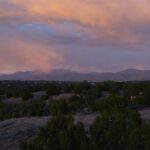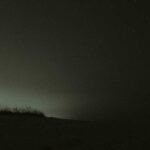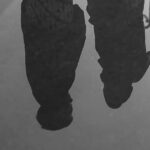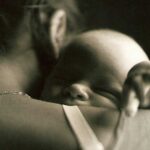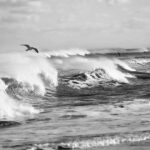NOT ANOTHER TV DAD
★ ★ ★ ★
A WAY OUT
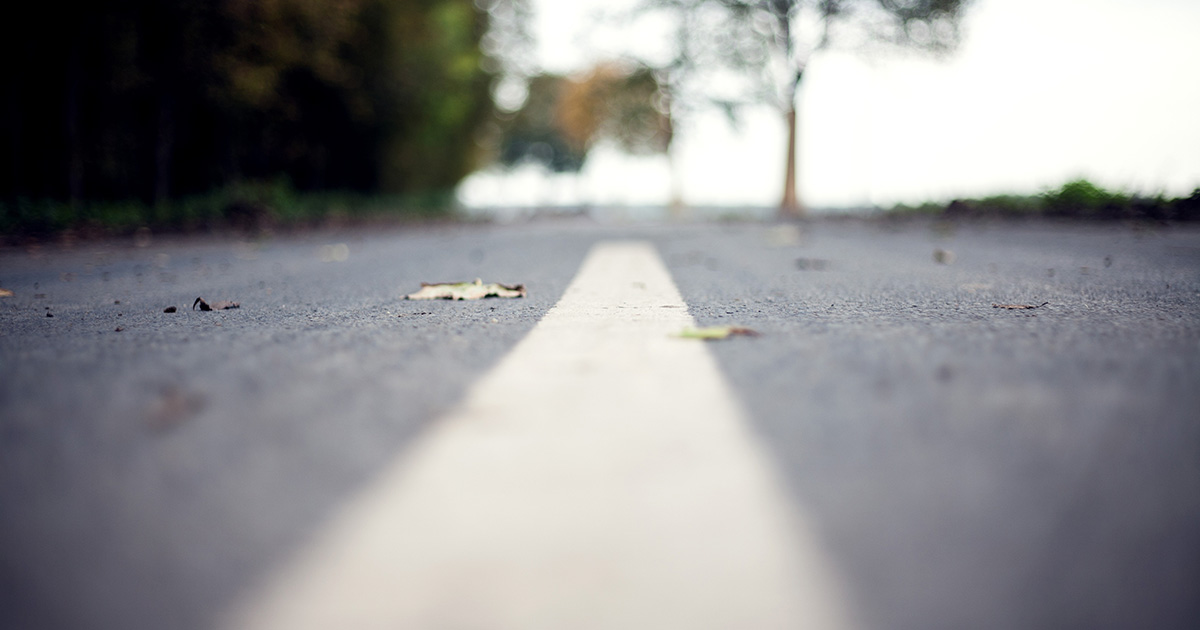
By CL Bledsoe
Most folks never thought I’d graduate high school. I scored high on various placement tests and even took Honors classes, but I was also obviously imploding, failing classes, and making no efforts toward a life beyond high school. This was due to my volatile home life. When I was in my early teens, my mother went into a nursing home with dementia. Whenever we’d visit, she’d rattle off the names of all of her kids in quick succession; one of them had to be the right one. It was a genetic disease, which meant that any or all of us might have it. School seemed pointless when faced with this looming specter. In fact, I was frozen with agoraphobia, though I didn’t know the name at the time. As my friends either went off to college or to work jobs that were becoming careers, I somehow graduated high school, went home to my father’s house, and stayed away from the windows and the eyes of gossips. I wrote terrible poems and stories. I watched TV. I contemplated suicide. Life became a succession of gray days, insomnia, and paranoia. I knew it was just a matter of time before my father threw me out, and then what would I do? But I couldn’t find a way out.
After a few months of this, late one night, I got a phone call from Jason, a friend I’d grown up with, asking me to come pick him up. I didn’t understand what he was talking about, but he said something about two carloads of guys coming after him. He gave me directions to a house out on the country road of Summersweet and said not to stop, just slow down and he’d jump in. I borrowed my father’s farm truck and drove out to the house. I pulled into the driveway. My friend ran out of a dark ditch and jumped in, yelling, “Go! Go!” My father’s rickety old truck was not one that could really, “Go!” but I drove as fast as I could.
Back at my father’s house, the first thing Jason did was hide a sawed-off shotgun under the couch in the living room. He spoke in guarded language, but apparently, he’d upset some people, and they’d come after him to kill him. They’d done a drive-by at his house—can someone do a drive-by on a gravel road, I wondered? Isn’t it more of an ease-by? He hinted at things but didn’t clarify them. Were they competing drug dealers? He claimed to sell pot but never meth, though he would tell stories about selling meth that contradicted this. I heard stories, later, that he’d simply picked a fight with the wrong person.
Whatever was going on, my friend was clearly frightened, and I intended to help him as best I could. My father really didn’t care if Jason stayed with us, so he took up residence on my couch. I had a car my father had bought with the insurance settlement when a drunk driver hit my previous car, but it was a piece of junk with a leaky radiator. We always kept jugs of water—antifreeze when we could afford it—handy while I drove Jason around to see his various friends.
And he had a lot of friends. The core group were a couple of walking stereotypes. Clay was holding out that his lawsuit against Toyota would make him rich. The Mutt to his Jeff was a thin, gangly pothead who lacked even that pipe dream. Everyone called him Smokedog. Without a trace of irony.
I won’t say that I thought I was better than them, I just thought they didn’t make any sense. They were casually racist, for example, and yet all of their heroes were black. They would quote black rappers and actors constantly, and argue about which black athlete was better than another. This was before the internet was really a thing, but I don’t know if I would call them proto-edge lords, the kind of guys who’d one day talk trash on 4Chan boards, or maybe they just hadn’t really put any effort into self-study.
But I ignored this. We’d crash at somebody’s house for a few days then move on to somewhere else, maybe for weeks at a time. They would all gather in my father’s driveway, which was a respectful move, mind you, since they could talk without disturbing him, and discuss things like how much weed they could buy if they broke down a car and sold its component parts.
I was used to addicts. It seemed as though most of the adult men I knew, growing up, were addicts. That seemed to be my future. I could work hard and be an alcoholic, hating everything including myself. Or I could be a pothead and quote the movie Friday to the point where it became hard to tell where the movie ended and I began. Or I could keep hiding.
There wasn’t a pivotal moment for me where I hit bottom or a ray of light shone from a cloudy sky. One night, Jason and the others had been discussing what they’d do if an asteroid full of pot crashed to Earth, when I took Jason aside and told him he had to get these potheads away from my house.
“I can’t do it anymore,” I said. I’d simply reached my limit of wishful thinking. They left, and over the next few days I sold everything I could lay claim to, took that meager sum of money, and moved out of my father’s house. Since then, I’ve worked two or more jobs at a time pretty much steadily. I’ve gotten a Bachelor’s and an MFA and am currently working on another graduate degree and have taught school for a decade. I’ve been through a great deal of therapy and several medications. None of it was easy, but the truth is, hiding in that house wasn’t easy, either.
Most importantly, I have a wonderful daughter who has taught me that life isn’t always gray. Sometimes, it’s pink. I haven’t seen Jason in close to two decades, but I hope he’s doing okay. I hope he found that pot asteroid he was hoping for.
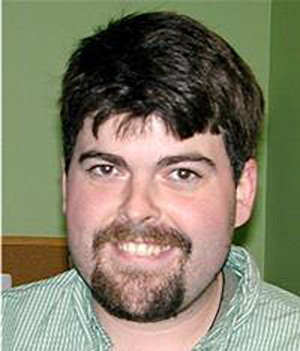
CL Bledsoe is the author of sixteen books, most recently the poetry collection Trashcans in Love and the flash fiction collection Ray’s Sea World. His poems, stories, and nonfiction have been published in hundreds of journals and anthologies including New York Quarterly, The Cimarron Review, Contrary, Story South, and The Arkansas Review. He’s been nominated for the Pushcart Prize fifteen times, Best of the Net three times, and has had two stories selected as Notable Stories of the Year by Story South‘s Million Writers Award. Originally from a rice and catfish farm in the Mississippi River Delta area of Arkansas, Bledsoe lives with his daughter in northern Virginia. He blogs at NotAnotherTVDad.blogspot.com

DEAR READER
At The Wild Word we are proud to present some of the best online writing around, as well as being a platform for new and emerging writers and artists.
If you have read the work in The Wild Word and like what we do, please put something in our tip jar.
THANK YOU FOR YOUR SUPPORT!



